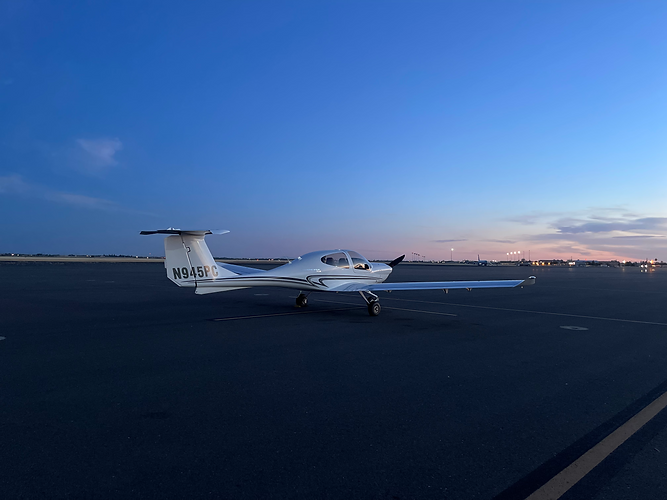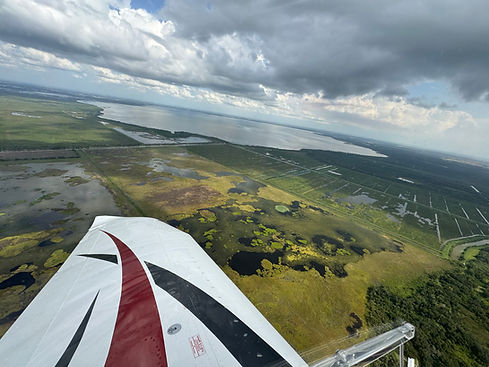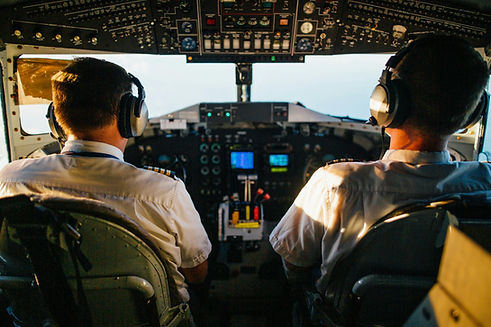
Instrument Rating Sacramento – Get IFR Certified at Skyrise Aviation
Become a safer, more capable pilot with an Instrument Rating from Sacramento’s leading flight school. Skyrise Aviation delivers structured, scenario-based training using the latest aircraft and industry-proven methods.
Why Earn Your Instrument Rating in Sacramento?
An Instrument Rating (IR) is the next level of training after earning your Private Pilot Certificate. It allows you to legally and safely fly under Instrument Flight Rules (IFR)—even in poor visibility or challenging weather conditions. With an instrument rating, you’re not limited to Visual Flight Rules (VFR), meaning you gain more flexibility, professionalism, and safety in the cockpit.


Instrument Rating Requirements
To begin training for your instrument rating in Sacramento, you must meet the following FAA eligibility requirements under FAR 61.65:
-
Hold a Private Pilot Certificate
-
Be at least 17 years old
-
Be able to read, speak, write, and understand English
-
Hold a current FAA medical certificate (minimum third class)
Receive and log instrument ground training from an authorized instructor or complete a home-study course
What You'll Learn
At Skyrise Aviation, your instrument rating education begins with comprehensive ground school instruction that blends interactive digital curriculum, FAA-approved textbooks, and live classroom-style lessons. You'll dive deep into key IFR concepts, including the structure of the IFR system and airspace, the use of enroute, approach, and departure charts, as well as aviation weather interpretation such as METARs, TAFs, radar imagery, and forecasts.
You'll also develop strong communication skills for working with air traffic control and gain proficiency in Aeronautical Decision Making (ADM) and Crew Resource Management (CRM). Additional topics include emergency procedures under IFR and the use of navigation systems like VOR, GPS, and ILS. This training prepares you to pass the FAA Instrument Rating Knowledge Test with a minimum score of 70%.

-
What is the process of obtaining a Private Pilot Certificate?Whether your goal is to have a career in aviation or just fly for fun, most individuals begin their journey in by earning a Private Pilot Certificate (colloquially referred to as a “pilot’s license”.) There are two components to earning a Pilot Certificate – 1. The knowledge component (a.k.a. “ground”) – tested via a 60 question FAA written exam The majority of the knowledge preparation is accomplished through self-study of an online course. The online course is included in the purchase of your student pilot kit and provides training videos as well as sample test questions to review. You will review/reinforce these concepts during regular meetings with your Certificated Flight Instructor (“CFI”) 2. The flight component – tested via a practical test that includes oral questioning and a flight Flight training is accomplished with you and a CFI in an airplane. There are three stages to the flying portion - Stage 1 - Pre-Solo During this phase you will learn the basics of aircraft control, emergency procedures, takeoffs and landings. At the conclusion of this phase you will perform your first solo flight. Stage 2 - Solo and Cross-Country During this phase you will refine your aircraft control skills by executing ‘performance’ takeoffs and landings. You’ll also continue solo flying, progressively branching out from the airport within the local area and eventually to ‘cross-country’ flights to other cities. Finally, you will complete night training and a night cross-country. At the conclusion of this phase your will have completed all of the aeronautical experience requirements of the Federal Aviation Regulations. Stage 3 - Checkride Prep The final phase of the training is all about preparation for the practical test – commonly called the “checkride”. Your CFI will help you polish your performance to ensure you’re prepared for the Knowledge, Skill and Risk Management elements set forth in the Airman Certification Standards (ACS). On Average It Takes 65 Flight Hours & ~ 6 Months To Complete This estimate is the national average reported by AOPA - the Aircraft Owners and Pilots Association - and assumes that you meet with your CFI 2-3 times per week for a lesson and do not take many extended breaks throughout the training process. Individual performance will vary.
-
What is the investment for a Private Pilot Certificate?The table below is represents a realistic budget for earning your Private Pilot Certificate. *Prices shown above are current as of December 2024 and are subject to change without notice. Costs are estimates for planning purposes, actual cost will vary based on individual performance. Tips For Controlling Costs 1. Commit the time and money upfront. Do not be begin training until you know that you’ll be able to finish. Make flight training a priority in your life. In addition to the time you’ll be meeting with a CFI each week - plan an additional 6-8 hours of study time at home to complete online ground school, prepare for flight lessons and review items that you debriefed after your last flight. 2. Be consistent. Fly two to three times per week. This frequency, particularly early-on, will maximize your retention of concepts and skills learned. Infrequent training leads to a lot of repetition, re-training & re-learning. 3. Arrive Prepared. Make sure you arrive for your lesson having completed any assigned pre-work as well as having reviewed the syllabus and the expected outcomes for the flight. Spend time “chair flying” at home to learn concepts, cockpit flows and memory items. Yes, that’s you, sitting in a chair pushing imaginary buttons in an imaginary cockpit, moving an imaginary control stick and an imaginary throttle. Trust us, it works. And it will save you time and money during your flight lessons.
-
What are the requirements for a Private Pilot Certificate?To earn a private pilot certificate, a pilot must: Be 17 years of age Read, speak, write and understand the English language Hold a U.S. student pilot certificate, sport pilot certificate, or recreational pilot certificate Receive flight training and a logbook endorsement from an authorized instructor Meet the aeronautical experience requirements for the aircraft rating sought Pass a practical test for the aircraft rating sought Reference 14 CFR §61.103 for a complete listing of all requirements.
Start Your Training with Skyrise Aviation
From your first discovery flight to your final checkride, our team is with you every step of the way. With a private flying license, you'll unlock the freedom of flight and open doors to endless possibilities—whether that’s weekend getaways, business travel, or building flight time toward a career.
Not sure where to start? Book a Discovery Flight today to experience what it feels like to fly a real aircraft with one of our certified instructors.


